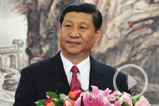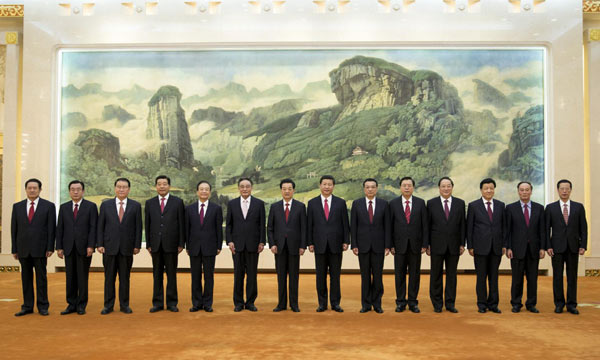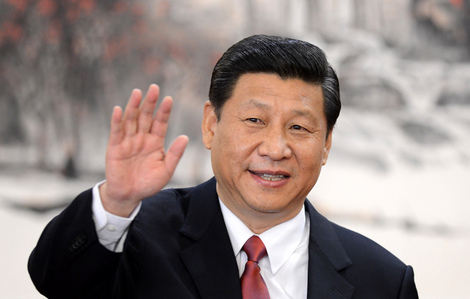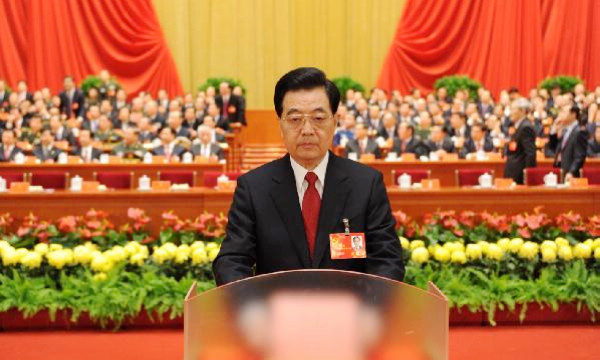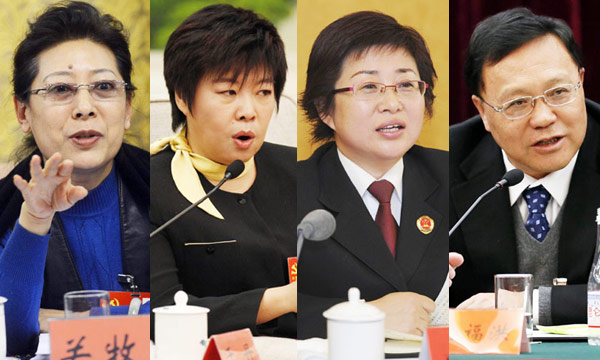Commentary: A time to chart China's future
(Xinhua)
Updated: 2012-11-07 16:22
BEIJING - After lengthy preparations and heated discussions among the authorities and public over what China should be like in the future, the Communist Party of China (CPC) will convene its 18th National Congress on Thursday.
More than 2,200 delegates representing about 82 million CPC members will take about one week to show how they are going to reshape China in the coming five years and beyond by setting forth the development blueprint for the Party and the country and choosing the next generation of leadership.
The new leaders the CPC national congress selects and the decisions made during the congress will weigh heavily on the world's second-largest economy due to the CPC's status as China's only ruling party since 1949.
On the eve of the event, which is held every five years, the 91-year-old CPC is inheriting successes and wealth, as well as lessons and challenges, from its own course of exploration and predecessors.
The CPC has succeeded dazzlingly in the past three decades in overcoming massive difficulties and obstacles, propelling China into its current position as the world's fastest growing economy, reporting average annual growth of 10.7 percent from 2003 to 2011.
China contributed to about 10 percent of the world's gross domestic product while chalking up more than one-fifth of global growth last year, according to data from the National Bureau of Statistics.
Thanks to rapid development over the past decade, the lives of Chinese people are also undergoing profound and positive changes, and public demand for participation in state affairs is rising rapidly.
The 18th CPC National Congress comes at a crucial moment, as the Chinese economy is slowing after three decades of nearly double-digit growth.
According to a study conducted by a research team from the Chinese Academy of Social Sciences, a government think tank, Chinese policymakers will have to get used to an economy that expands by about 8 percent annually in the next decade, as former ultra-high economic growth will soon fade in the country.
Many people are afraid that economic difficulties coupled with other challenges will hinder the CPC in fulfilling its mission to build China into an industrialized, prosperous society by 2020.
For the Chinese public, pressing tasks include curbing widespread food and drug safety problems and stopping the flagrant abuse of power and corruption among government officials and business people -- issues that have triggered a series of protests across the country over the past years.
Challenges also come from outside, as the external environment has never been as complicated as it is now. The sovereign debt crisis and massive economic restructuring in developed countries after the global financial crisis has brought uncertainty and volatility to the world in recent years, thus threatening China's growth in a globalized world.
China must also adjust its relations with major powers, developing countries and neighboring countries in accordance with the latest changes in the global situation. Pressing tasks include handling escalating tensions over territorial disputes with Japan, the world's third-largest economy.
The rapidly changing circumstances at home and abroad require the CPC to come up with new strategies and plans to override difficulties to verify its legitimacy, bring a promising future to the Chinese people and reassure the international community that a successful China will bring peace, not conflicts or war, to the world.
However, the question is: under the CPC's leadership, can China, a country with a population of 1.3 billion, set its own path in building a strong, democratic, culturally-advanced and harmonious society in such an uncertain world? And, if so, what changes are needed?
The congress is expected to require all CPC members to remember how the Party came to national power and bear in mind an old Chinese saying: "Water can carry a boat and can also overturn it." Governing a country is a lot like sailing a boat, which requires a similar, clear sense of direction, aspiration and goal.
Indeed, moves to address the problems of the people are exactly the missions the CPC must fulfill, as its Party Constitution stipulates that it represents the fundamental interests of the overwhelming majority of the Chinese people.
The solution to those problems depends on how the CPC carries out serious reforms to promote balanced, coordinated and sustainable development.
The key to pushing forward reforms lies in unifying CPC members' minds by injecting stronger determination. More forceful measures are needed to accelerate the transformation of the economic development pattern that will make China's economic growth more sustainable and more capable of shrugging off external volatility.
Just having economic growth is far from enough. The reform of the political system with greater democracy is also imperative.
In alleviating people's worries and fully addressing the people's most practical concerns, there will be no better way to achieve these goals than by showing respect for the rule of law and ensuring the legitimate rights and freedoms of the people.
Whatever reforms the upcoming 18th CPC National Congress promotes -- whether they are political or economic or related to education or social welfare -- can only be pushed forward resolutely. There can be no moving backward.
In charting the future for 1.3 billion people, the CPC should stick to the correct path, take the appropriate actions and get things done without hesitation.
Only in this way can the CPC create hope for the general public and give them more confidence, as well as reduce uncertainty about China's future.
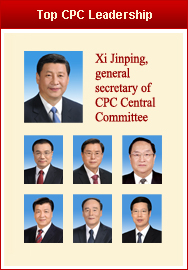
Top News
Xi emphasizes adherence to CPC Congress spirit
Top legislator urges implementation of congress spirit
Moderately prosperous China brings chances to world
Video
